Climate: Last chance to save nature, Wales campaigners say
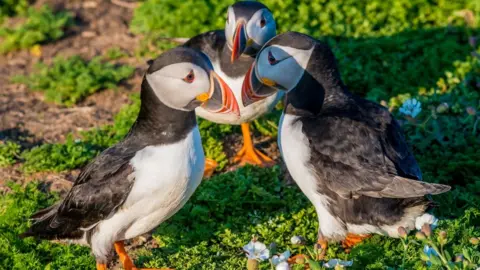 The Wildlife Trusts/PA
The Wildlife Trusts/PAWales has reached its "last chance to save nature", wildlife groups have warned.
More than 40 organisations have written to the Welsh government saying Wales has become "one of the most nature-depleted countries in the world".
The Senedd is set to pass a new agricultural bill this month, but charities have argued the "crucial" reforms do not go far enough.
The Welsh government called the legislation "transformational".
One in six species - from salmon to hedgehogs - is currently at risk of extinction in Wales, with 73 having already disappeared since the 1970s.
The group, which includes the WWF, RSPB and Wildlife Trust Wales, said in the letter seen by BBC Wales that none of the country's natural ecosystems - such as rivers or woodlands - is classed as resilient enough to face threats including climate change.
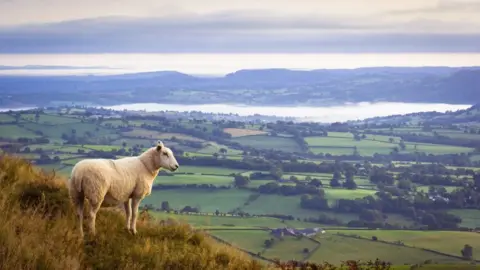 Getty Images
Getty ImagesSome farming organisations - including The Landworkers' Alliance and Nature-Friendly Farming Network (NFFN) - also signed the letter and said they were "increasingly concerned" the Agriculture (Wales) Bill would fail to deliver for wildlife.
They asked Members of the Senedd (MSs) to make changes before it is passed on 16 May.
The legislation will pave the way for a new funding model for farming - as pre-Brexit era subsidies are replaced by the Welsh government's Sustainable Farming Scheme.
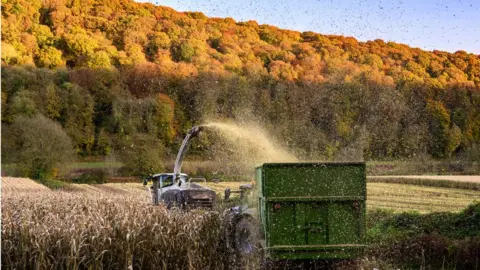 Getty Images
Getty ImagesBut the charities said the wording was too weak to influence real change and could prove "disastrous".
They want the phrase "restore nature" added as a clear objective of the plans to reform agriculture.
The bill currently uses an older concept of "maintain and enhance" rather than "restore" - lifted from the Environment (Wales) Act of 2016.
The organisations warned this does not match the ambition shown in a landmark global agreement on biodiversity at the COP15 summit in Canada last December, which highlighted there were "just seven years left to halt and reverse the loss of our natural world".
 WWF
WWF"The way we manage land through agriculture is the biggest driver of nature loss in Wales," explained Shea Buckland-Jones, policy manager at WWF Cymru.
"So in turn the agriculture bill - if designed right - provides us with a once in a lifetime opportunity."
"This is about influencing the system that sits around farmers in Wales - they are the guardians of the land," he said.
"If we don't get this bill right, we won't be in a position to meet some of those targets that the Welsh government has signed up to at COP15."
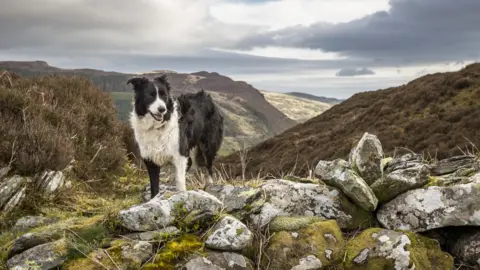 Getty Images
Getty ImagesThe proposed make-up of Wales' first bespoke agriculture bill has been the subject of furious lobbying from all sides - with farming unions emphasising the need to protect the country's network of small, family farms and boost food production.
This has already led to some concessions including the promise of ongoing "stability" payments for farmers and a simpler approach to the future funding scheme.
That will initially involve meeting a checklist of actions for farmers, from having 10% tree cover to reporting data on use of pesticides.
But environment groups worry these requirements are "low-hanging fruit" that many farmers would already be achieving.
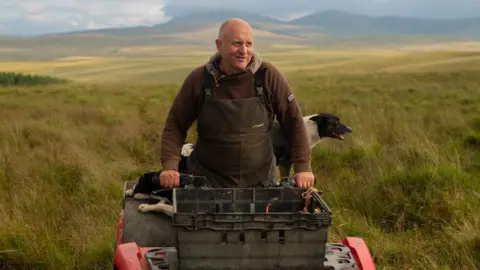 David Bebber/WWF
David Bebber/WWFHywel Morgan, chair of Nature Friendly Farming Network Cymru, said "ambitious government policy" was needed to support and reward a different way of farming.
"Nature-friendly farming is a triple win: it's good for nature, farmers and wider society," he said.
The Welsh government said the bill was "ambitious and transformational" and would "support farmers, sustainable food production, and to conserve and enhance the Welsh countryside, culture and language".
"One of the objectives of the bill is to maintain and enhance the resilience of ecosystems and the benefits they provide," it said.
